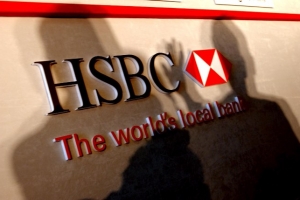Investing
IFAs at UK’s largest bank to go restricted post-2012

HSBC is to convert its whole-of-market advisory proposition into a restricted advice model next year, according to Investment Week.
The bank has around 400 in-branch IFAs at present, offering whole-of-market advice, as well as an execution-only model.
However, from next year, it is understood the bank’s advisers will become restricted, offering a limited range of funds to customers.
The bank’s IFAs are currently remunerated via the funds they sell, taking a cut of the annual management charge (AMC), which varies depending on the funds being offered.
This will change after the Retail Distribution Review (RDR) is implemented on 31 December, with the bank charging clients directly and buying clean shares classes from fund groups.
HSBC said it had not yet finalised its new charging structure for clients although an announcement will be coming out shortly.
It is the latest change to the advice proposition at the UK’s largest bank.
Earlier this year, it axed its tied-advice service, resulting in the loss of 650 jobs for advisers at the bank.
The move left the bank with just its whole-of-market advice arm, and its execution-only service.
HSBC’s decision to convert to restricted advice mimics that of many of its peers.
Platform giant Skandia has already set out its proposition in the restricted market, while scores of other businesses – including Quilter and City Asset Management – are also converting.
HSBC’s move means it is free to work with a small panel of ‘partner’ asset managers, rather than offer the whole investment fund universe to clients.
Under its new structure, the bank will work with around 15-20 fund groups, offering a restricted white list of around 40 funds to clients.
However, it is understood there will be very little change to the list of funds it already offers clients, as the bank currently only works with a selected number of partners.
The change comes amid pressure on the industry from the FSA which is moving firms to a model which sees them limit the range of funds consumers can buy.
Problems with failed schemes – in particular Arch Cru – and the subsequent collapse of a number of IFA businesses who sold such products, have damaged confidence in the financial services sector.
Arch Cru, Keydata and other failed schemes have also resulted in an increasing number of special levies on advisers and wealth managers to cover the cost of failed products.
The new approach – limiting consumer choice and putting the onus on big firms and buy lists – is designed to prevent another failure on the scale of Arch cru.
The thinking is that if large networks restrict customer choice, if any funds do subsequently collapse, the onus will clearly be on them to cover any losses.
However, it also potentially gives big distributors the power to squeeze asset managers, allowing them to ask for generous terms which groups will have to pay if they are to get onto valuable buy lists.
HSBC said it would not charging fund groups a fee to get on to its buy list.